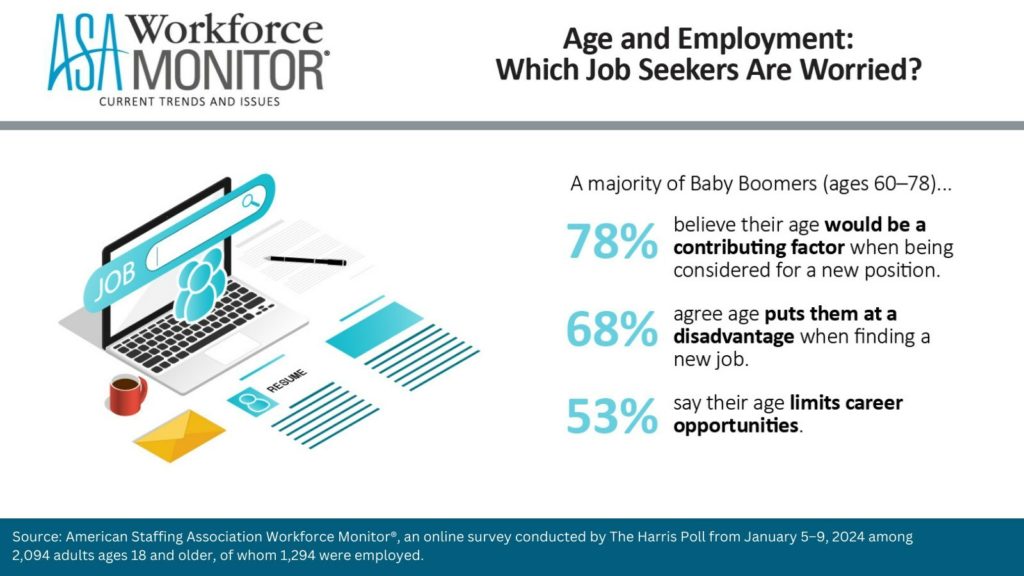Over two-thirds of Baby Boomers in the US say that their age puts them at a disadvantage in job searches, according to new research.
Although there are now double the amount of Baby Boomers (ages 60-78) in the workplace compared to 35 years ago, 78% believe their age would be a contributing factor when being considered for a new position, according to new research. In fact, 68% of Baby Boomers say their age puts them at a disadvantage when finding a new job according to the latest survey from the American Staffing Association and The Harris Poll.
This sentiment is shared by just half (55%) of Gen Z (ages 18-27), along with 51% of Gen X (ages 44-59), and 39% of Millennials (ages 28-43). The news comes as on the heels of data showing that nearly one-in-five (19%) US adults aged 65 and older were employed last year, almost double the number from 35 years ago. The survey also found that two-thirds of Baby Boomers (68%) believe their age puts them at a disadvantage when finding a new job, compared with 53% of Gen X, 29% of Millennials, and 48% of Gen Z.

WORKPLACE AGE DISCRIMINATION
Overall, a majority of Baby Boomers (53%) say their age limits their career opportunities. Employed Baby Boomers are also less likely (42%) to ask for a raise in 2024, compared with their younger employed counterparts: 66% of Gen Z, 67% of Millennials, and 51% of Gen X . The Boomer generation is also far less likely to search for a new job in 2024 (21%) compared with their younger counterparts (Gen Z: 69%; Millennial: 50%; Gen X: 37%.)
“It’s time for a paradigm shift in how the U.S. labor market views older workers,” said Richard Wahlquist, CEO of the American Staffing Association. “Discrimination based on age is illegal and cannot be tolerated. But routing out persistent and growing ageism requires much more than stepped-up legal enforcement. Policy makers and HR leaders need to work together to correct and overcome the misconceptions, stereotypes, and biases—conscious and unconscious—of the past. Mature workers have the knowledge as well as the workplace skills accumulated over a lifetime that America needs today and will need even more in the future.”







































